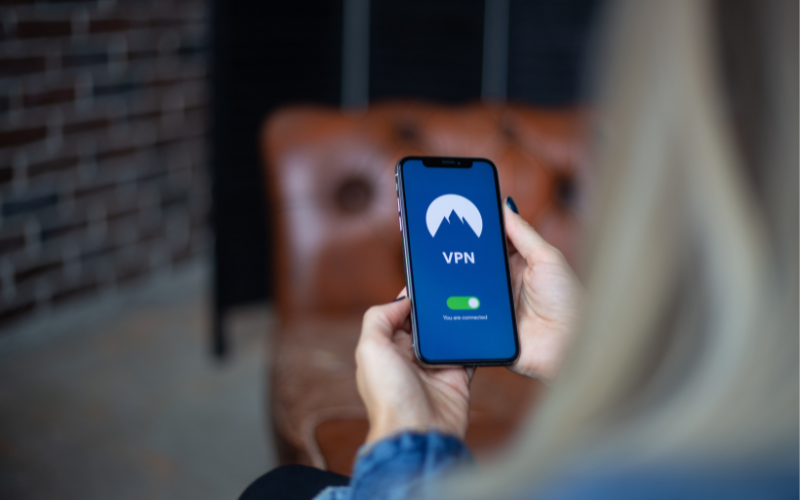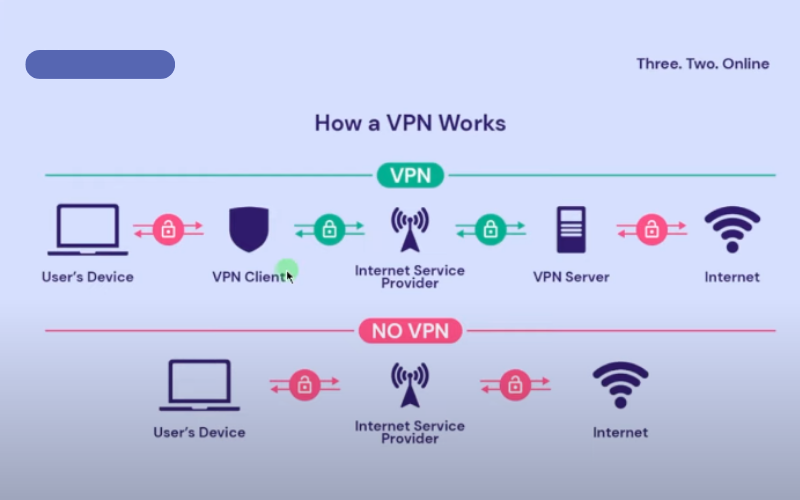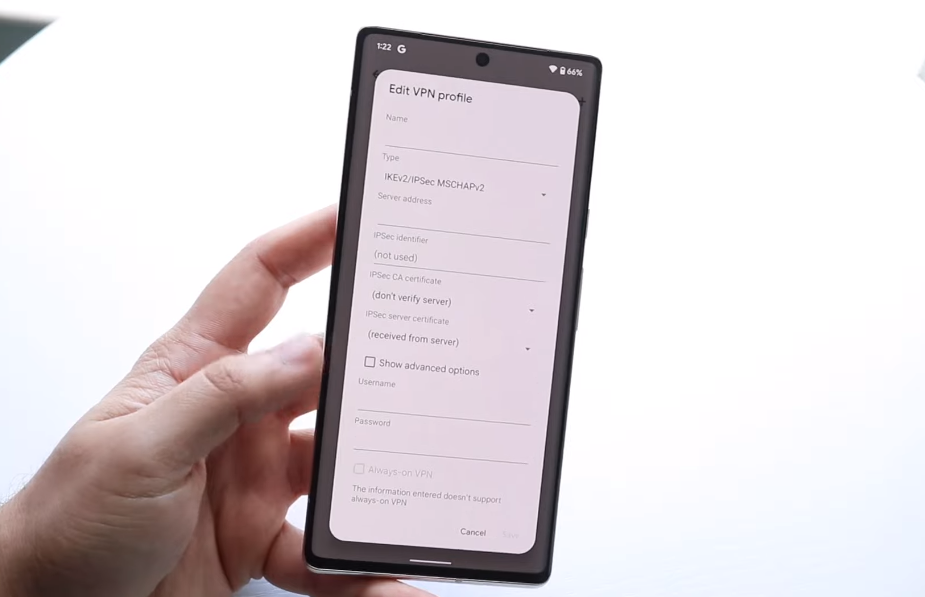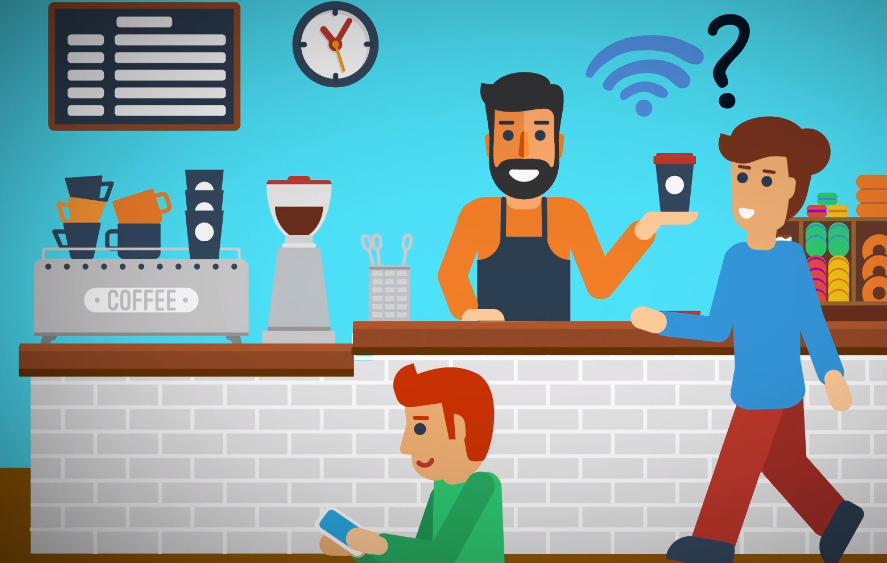Introduction
VPNs can significantly improve mobile security. When you connect to a public Wi-Fi network, your device is exposed to potential cyber threats. However, when you use a VPN on your phone, it encrypts all the data transmitted between your device and the internet. This means that even if someone intercepts your data, they won’t be able to read it.
But not all VPN providers are trustworthy or reliable, and some may even collect user data themselves. While it’s true that a quality VPN can encrypt your internet traffic and make it much harder for hackers to intercept sensitive information like passwords or credit card numbers, it doesn’t offer complete protection against all types of cyber attacks. For example, if you download malware onto your device while connected to a VPN, the encryption won’t prevent the malware from wreaking havoc on your system.
Understanding VPN Technology
What Is VPN?

Virtual Private Network is a tool that protects your online data by encrypting your internet connection and routing it through an intermediary server. This ensures that your online activities are not visible to prying eyes such as hackers, governments, and Internet Service Providers (ISPs).
How VPN Works?

When you use a VPN service, your internet traffic is routed through a secure and private network of servers that encrypts all data in transit. This means that anyone trying to intercept your data will only see scrambled code rather than the actual content.
Types Of VPN
There are many types of VPNs available on the market, each with its own unique features and benefits.
One of the most common types is the remote access VPN, which is typically used by individuals who need to connect to a private network from a remote location. This type of VPN allows users to securely access files, applications, and other resources on their company’s network without having to physically be in the office.
Another type of VPN is the site-to-site VPN, which is commonly used by businesses with multiple locations. This type of VPN allows different sites to communicate with one another over a secure connection, creating a virtual network that spans multiple physical locations.
Finally, there are also mobile or phone VPNs that are specifically designed for use on smartphones and tablets. These types of VPNs provide an additional layer of security when browsing online through public Wi-Fi hotspots or cellular networks.
How Does Phone VPN Work?
Setup Of Phone VPN

When it comes to setting up a VPN on your phone, there are several factors that come into play when determining how secure it really is. One of the key factors is the quality of encryption used by the VPN service provider. The stronger and more advanced the encryption, the more secure your connection will be.
Another important factor to consider is whether or not your chosen VPN service logs any data, including user activity or personal information. If they do log this data, it may be possible for third parties to gain access to your personal information and potentially compromise your security.
It’s important to choose a reputable VPN provider with a proven track record of protecting their users’ privacy and security. Do some research before selecting a VPN provider and read reviews from other users to ensure that you’re making an informed decision about which service to use.
Before setting up your phone VPN, make sure your device is updated with the latest software and security patches. Be wary of using public charging stations or USB ports, as these can be used to install malware onto your device. Once you’ve selected a trustworthy VPN service, download their app from the App Store or Google Play store and follow the setup instructions carefully.
Benefits Of Phone VPN
VPN provides you with complete anonymity and privacy while browsing the internet. With a VPN, you can mask your IP address and location, making it difficult for anyone to track or monitor your online activities. Additionally, phone VPNs encrypt all data sent between your device and the server, ensuring that no one can intercept or steal sensitive information.
Limitations Of Phone VPN
When using a VPN on your phone, you may experience slower internet speeds due to the added encryption process. Additionally, some websites and streaming services may block access to their content when using a VPN.
While most VPNs claim to have a “no-logging policy,” there is no way to verify their claims. Essentially, you are putting your trust in the hands of the VPN provider, which can be risky if they were ever subpoenaed by law enforcement or hacked by cybercriminals.
Using a VPN on your phone does not protect you from all types of cyber threats such as phishing attacks or malware. It is still important to practice safe browsing habits and keep your device updated with the latest security patches.
Risks To Mobile Data Security
Types Of Risks
There are various types of risks that one can encounter when using a phone VPN.
A common risk is connection disruptions or dropped connections. When this happens, your device may automatically switch to an unsecured network, making your data vulnerable to interception by malicious third parties. Network congestion and low bandwidth can also make the VPN connection unstable, increasing the likelihood of potential security threats.
Another risk is DNS leaks, which occur when the VPN service provider’s server fails to respond in time or provides incorrect information to your device’s DNS queries. This results in your IP address being exposed, leaving you susceptible to online tracking and surveillance. Additionally, some free VPN providers have been known to harvest user data for profit or share it with third-party advertisers.
Public Wi-Fi Networks

Security risks associated with public Wi-Fi are very real and can compromise your personal information. When you use public Wi-Fi networks, attackers can potentially intercept data that flows between your device and the internet. To mitigate these risks, many people rely on virtual private network (VPN) apps when using their phones in public.
Malicious Apps
Malicious apps can do a number of things, from stealing your personal data to draining your phone’s battery life. Malware is often disguised as legitimate apps, making it difficult to detect without proper cybersecurity measures in place. One common method used by cybercriminals is to create fake VPN apps that are advertised as a way to protect users’ online activity, while in reality they are designed to steal sensitive information.
Data Breaches
Data breaches have become increasingly common over the years as hackers continue to find innovative ways of infiltrating devices and stealing sensitive information. The use of phone VPNs has been touted as a way of ensuring security when using public Wi-Fi networks. However, recent reports suggest that not all phone VPNs offer foolproof security.
While most phone VPNs encrypt data transmissions, some may still leak user information due to configuration errors or vulnerabilities in the software used. Additionally, some free phone VPN services may sell user data to third-party companies, thereby compromising their privacy.
VPN For Mobile Data Security
How VPNs Improve Mobile Security
A good VPN will also mask your IP address and location, making it harder for hackers and cybercriminals to track your whereabouts or access sensitive information like passwords and credit card details. Additionally, some VPN providers offer features like ad-blockers and malware protection which further enhance mobile security.
Why Use VPN For Mobile Devices?
Mobile phones and tablets are susceptible to cyber attacks due to their constant connection to the internet. A VPN can provide an additional layer of security by encrypting your internet traffic and hiding your IP address from prying eyes. It’s especially important when using public Wi-Fi networks where hackers can easily intercept data.
Myth-Busting Phone VPN
The Role Of Encryption
One common misconception about phone VPNs is that they provide complete security and privacy. While it is true that a VPN encrypts your internet traffic, it does not necessarily protect you from all threats. For example, if you download malicious apps or visit phishing websites, a VPN cannot prevent these actions from happening. Additionally, some VPN providers may keep logs of your online activities or even sell your data to third-party advertisers.
Another misconception is that all phone VPNs are the same. In reality, different providers offer varying levels of security and usability. Some free VPNs may be less secure than paid options because they rely on ads or have limited server locations. It’s important to do proper research before choosing a phone VPN and consider factors such as encryption protocols, server locations, and privacy policies.
Is Phone VPN Really Secure?
The answer largely depends on the VPN provider you choose and how you use it.
Factors To Consider
One of the main factors to consider when evaluating the security of a phone VPN is the encryption protocol used by the provider. AES-256 encryption is currently considered one of the most secure and reliable encryption standards in use today, and any reputable VPN provider should be offering this level of protection at a minimum. Additionally, it’s important to consider whether or not your chosen VPN service stores user data logs, as being able to identify individual users could potentially compromise your anonymity.
Another factor to consider is the location of your VPN provider. It’s generally recommended that you choose a provider located in a country with strict privacy laws and regulations, such as Switzerland or Panama. This can help ensure that your personal information and browsing activity remain private and protected from prying eyes. Finally, it’s always worth checking for additional features such as automatic kill switches which will ensure that if your connection drops for any reason all online activity ceases until you reconnect securely again.
Privacy Policies Of VPN Providers
It’s crucial to understand a VPN provider’s stance on data collection, logging, and sharing before investing in their services.
Some VPN providers have been known to collect extensive user data such as browsing history, IP addresses, and even device information. This puts users’ privacy at risk as this information can be sold to third-party companies or even handed over to law enforcement agencies if requested. On the other hand, reputable VPN providers prioritize user privacy by implementing strict no-logging policies that guarantee users’ data remains safe and anonymous.
Choosing The Right Phone VPN
A good phone VPN should have robust encryption protocols that ensure your online activity remains private and confidential. It should also have advanced features such as a kill switch, which automatically disconnects from the internet in case of any connection loss to prevent data leaks. Additionally, it should not log any personal information or browsing history as this could compromise your privacy.
Popular VPN Providers For Mobile Devices
To ensure maximum security when using a mobile VPN, it’s important to choose a reputable provider with strong encryption methods and a no-logging policy. Popular options include NordVPN, ExpressVPN, and CyberGhost, all of which offer reliable connections and advanced security features for mobile users. By choosing the right VPN provider, you can enjoy peace of mind knowing that your online activity is protected from prying eyes.
Performance And Speed
Impact Of VPN On Mobile Data Speed
Using a VPN on your mobile device can have an impact on your data speed. This is because the VPN encrypts your internet traffic and reroutes it to a server in another location. The encryption process can slow down your connection since it requires extra processing power from your device. Additionally, connecting to a server that is far away from you can cause latency issues and increase the time it takes for data to travel back and forth.
However, the impact of VPN on mobile data speed varies depending on several factors such as the type of VPN protocol used, network coverage, and bandwidth capacity of the server. Some VPN providers also offer features like split-tunneling which allows you to choose which apps use the VPN connection while others access the internet directly.
Measures To Improve VPN Performance
Check if you have the latest version of your chosen VPN app installed. Developers regularly release updates that include bug fixes and performance improvements. Try connecting to a different server location. If you’re experiencing slow speeds or connection drops, it could be due to overcrowded servers in your current location. Consider upgrading your phone’s hardware or switching to a faster internet connection.
Alternatives To Phone VPN
Proxy Servers
Using a proxy server can make your phone VPN more secure. A proxy server acts as an intermediary between your device and the internet, which means that all traffic is routed through the server instead of directly from your device. This extra layer of protection can help to prevent hackers and other malicious actors from intercepting your data or tracking your online activity.
One of the key benefits of using a proxy server is that it can help to mask your IP address, making it more difficult for anyone to trace your online activity back to you. In addition, many proxy servers offer advanced encryption features that can further protect your data from prying eyes.
Tor Browser
Tor Browser is free software that enables anonymous communication and browsing by routing internet traffic through a worldwide network of servers. By doing so, it conceals your IP address and location from potential cyber threats and makes it difficult for anyone to track your online activities. Additionally, Tor Browser encrypts web traffic between the user’s device and the first node in its circuit making sure that everything you do remains private.
While VPNs provide some level of anonymity by encrypting data transmitted between devices, they still leave behind traceable information such as your original IP address or metadata related to the sites you visited. On the other hand, Tor Browser promises complete privacy as long as you use it correctly.
Other Privacy Apps
Other popular privacy apps include AdGuard, which blocks ads and trackers system-wide; Malwarebytes, which offers real-time protection against malware; and DuckDuckGo Privacy Browser, which uses encryption to protect your browsing data.
Frequently Asked Questions
Is VPN Really Necessary For Mobile Devices?
If you frequently connect to public Wi-Fi networks or need to access sensitive information, then a VPN can provide an added layer of protection by encrypting your online activity and masking your IP address. This can help prevent cybercriminals from intercepting your data or tracking your location.
Can VPN Prevent All Types Of Mobile Security Risks?
A VPN encrypts your internet traffic and makes it more difficult for hackers to intercept, but it doesn’t necessarily prevent all types of attacks. For example, if you download a malicious app onto your phone, a VPN won’t be able to stop that app from stealing your data.
Is It Legal To Use VPN On My Phone?
Yes, it’s completely legal to use a VPN on your smartphone. However, there are some exceptions depending on where you live and what you’re doing with the VPN.
For instance, in countries such as China and Russia, using a VPN can be illegal if it hasn’t been approved by the government. In addition, if you’re using a VPN for illegal activities such as downloading copyrighted material or hacking into someone’s network, then that would also be considered illegal.
How Do I Know Which VPN Provider Is Reliable?
Check if the provider has a no-logging policy in place which ensures that they do not track or collect your online activities. This is important as it protects your privacy and ensures that your data cannot be sold or used without your consent.
Consider the strength of encryption used by the VPN provider. Look for providers that use 256-bit AES encryption as this provides maximum security and protection against hackers and other cyber threats. Additionally, consider the speed and stability of the VPN connection since slow connections can be frustrating and unreliable.
Conclusion
Using a VPN on your phone can provide some level of security, but it is not foolproof. While a VPN encrypts your internet traffic and hides your IP address from prying eyes, it cannot guarantee complete privacy or protection against all online threats. Some VPN providers may also keep logs of your activity, defeating the purpose of using a VPN in the first place.
